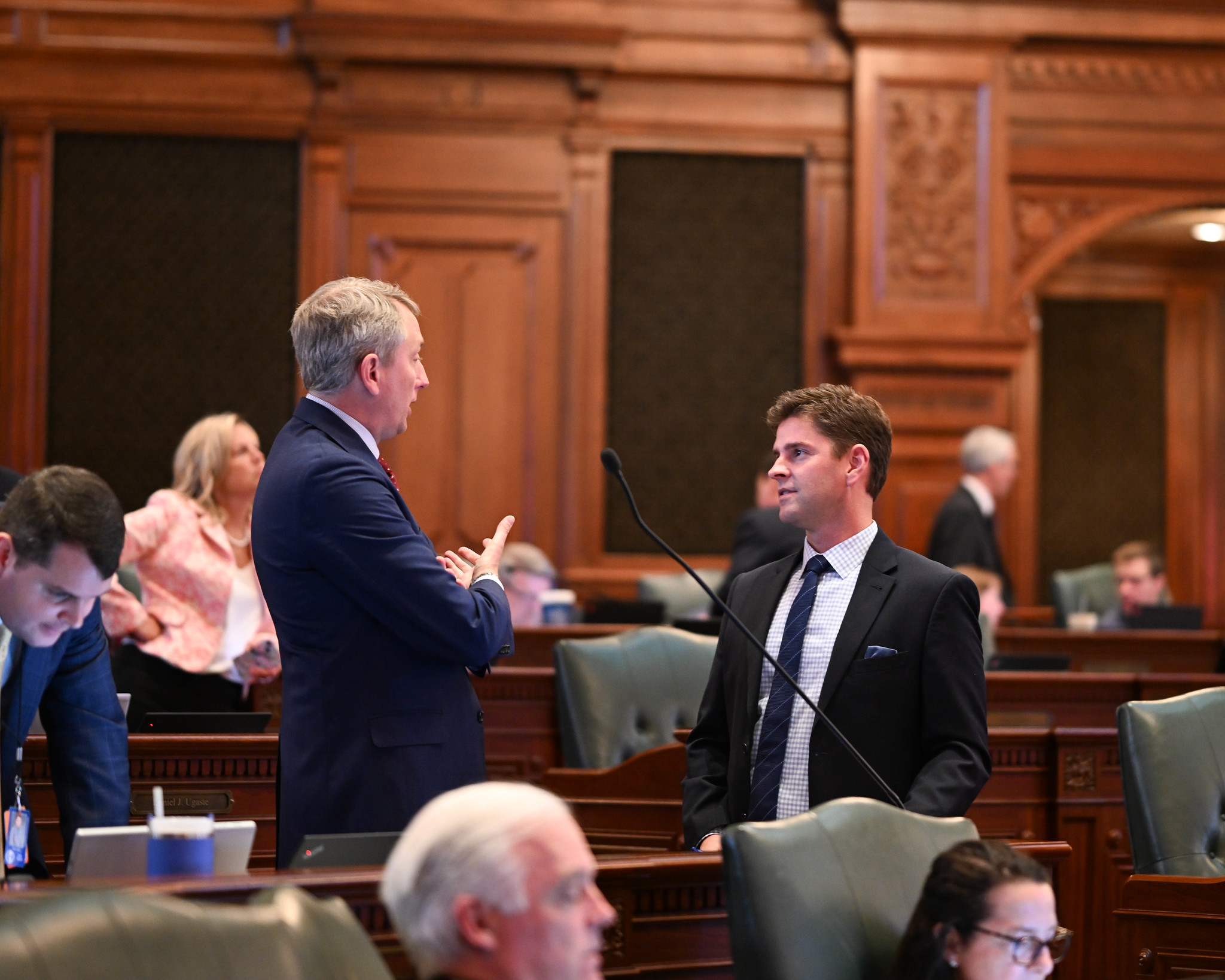During the final week of the Spring Session of the Illinois Illinois General Assembly, House Republicans, led by House GOP Floor Leader Patrick Windhorst and State Representative Dan Ugaste, vigorously opposed legislation that would prevent Illinois citizens from filing lawsuits challenging the constitutionality of laws or executive orders issued by the Governor in any county besides Sangamon or Cook County. The Representatives are both licensed attorneys and fought hard against HB 3062 during House Floor debate on the legislation.
The sponsor of the measure argued that questions involving the constitutionality of laws or executive orders often end up before the courts in Sangamon or Cook County due to consolidation of lawsuits. Rep. Windhorst argued that just because lawsuits eventually end up in a Springfield or Chicago courtroom, denying individuals the right to petition their government at the local level when they feel their rights have been infringed upon is itself unconstitutional.
“In my community, if the legislature passes a constitutionally questionable piece of legislation, which happens quite often, HB 3062 says that if someone wishes to file a lawsuit based on the constitutionality of a law or executive order of the governor, then that person will have to file that lawsuit in Springfield or Chicago,” Windhorst said.
“The Democrats in Illinois have received some rulings that didn’t go in their favor on things like the SAFE-T Act, and the Governor’s COVID Executive Orders, or on the recent firearms and ammunition ban. So, instead of passing laws that meet constitutional muster, Democrats are changing the rules, denying due process and local court access, and trampling on the rights of the citizens that I serve.”
Representative Ugaste also spoke against HB 3062 during the debate. He says the effort to limit an individual’s ability to seek legal action against the State seeking declaratory or injunctive relief against laws, rules, or executive orders is fundamentally wrong and unconstitutional.
The constitution applies to every citizen in every county and every city in the state,” Ugaste said. “Rather than using an existing remedy to assist the Illinois Attorney General’s office with an abundance of cases, the state legislature has instead decided to limit a crucial right of millions of Illinoisans to challenge the constitutionality of laws from their home counties,” said Rep. Ugaste. “This takes away the rights of the constituents of 100 counties in Illinois by limiting their venues to just two places in our entire state. We must be more concerned about citizens’ rights in our state and I’m extremely disappointed to say that was not the case in Springfield today.”
HB 3062 applies to actions brought against the State or any State employees, officers, or agents acting in an official capacity. The actions must be based on alleged violations of the Constitution of the State of Illinois or the United States. There is an exemption in the legislation for claims arising out of collective bargaining disputes between the State of Illinois and representatives of its employees.
“What’s also concerning about this legislation is how it impacts lower-income Illinoisans,” Rep. Ugaste continued. “Perhaps a person wants to challenge a state law and can only afford their local law firm. This denies them the opportunity to challenge the constitutionality of legislation that impacts their lives. We should not deny Illinoisans access to the courts and must work to preserve the rights of the people we serve with our best efforts.”
House Republicans voted in unanimous opposition to HB 3062 because the legislation would disregard local interests and increase legal costs and burdens on individuals that would otherwise be able to seek remedy at their local courthouse.
“To uphold the principles of fairness, equal treatment, and consistency in the legal system, it is important that constitutional challenge lawsuits are heard in appropriate local venues,” Rep. Windhorst said. “If HB 3062 is signed into law, it would deny those very principles to the citizens of the state of Illinois.”
